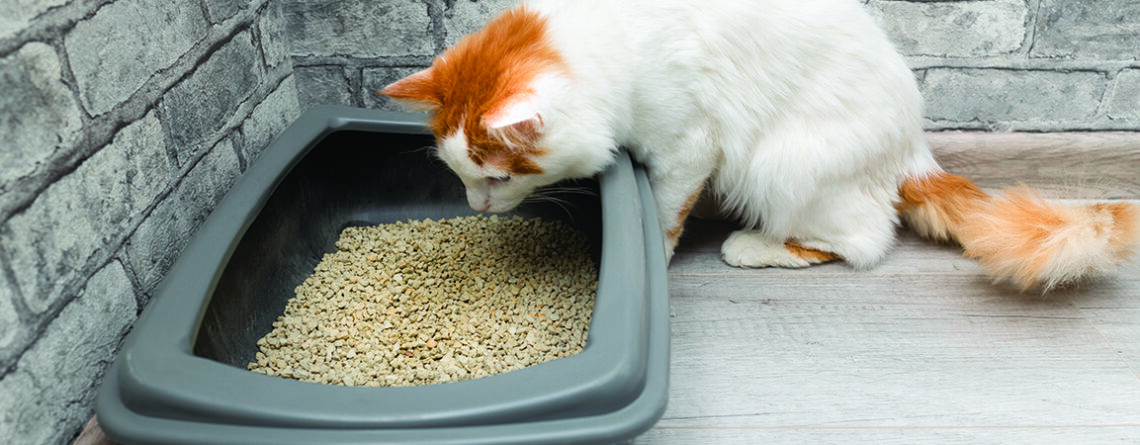Caring for your Cat’s Urinary Health
Cats are often inundated by urinary problems. Kidney disease, chronic bladder inflammation, and urethral obstruction are just some of the common medical conditions felines may face in their lifetime. They can affect cats of any age; some conditions can be managed or treated with medication or prescription diets, whereas other conditions may result in blockages that require invasive procedures or even surgery to fix.
Fortunately, there are ways cat owners can maintain their cat’s urinary health and keep these problems at bay. Whether your cat is prone to urinary trouble, or you are looking to reduce disease development, I have put together a guide on what you can do to care for your cat’s urinary health.

Carol Doyle, BSc VN DVM
Carol DoyIe is a small pet veterinarian in a practice in Ashbourne, Co. Meath and is the human companion to her cats, Nala and Donal, two horses - Indie and Bella, and her dog Phoebe.
As a guest blogger and advisor, Carol shares her professional advice with pet owners, answering many of the questions that she gets asked regularly in-clinic.
Why Do Cats Get Urinary Problems?
The main cause behind urinary issues in cats is stress related. Both male and female cats can develop urinary problems, but males are more likely to have suffer from urethral obstructions. Their urethras are longer and thinner compared to the female, and the narrower passage can get blocked more easily due to its size and shape.
Signs of Urinary Problems in Cats
- Struggling to urinate
- Urinating small amounts
- Frequent and/or lengthy attempts to urinate
- Yowling while urinating
- Excessive licking of the genital area
- Accidents in the house, urinating outside litter box
- Blood in urine
If you notice your cat exhibiting any of these symptoms, it’s important to take them to see your local vet right away so they can make a diagnosis and start necessary treatment.

How Can I Maintain My Cat’s Urinary Health?
1. Adequate Nutrition
There are many urinary diets available that can help care for your cat’s urinary health and reduce future episodes. Urinary health cat food works to promote an environment unfavourable to formation of crytals or stones. Some foods are also made to help dissolve certain crystals or stones. The foods can be specific to the type of crystals or stones they act on depending on if acidic or alkaline environments affect them so speaking with your vet first is important. Many urinary diets are available, and they can help you choose one that is appropriate for your cat’s requirements.
2. Increase Water Intake
A high water intake can help dilute the toxins, minerals, and irritants that can lead to urinary problems. Encourage your cat to drink more water by placing several bowls around the house. Avoid placing it next to food, litter trays or busy locations. Keep it at room temperature and fill the bowl right up for easy access. Always ensure it is fresh water as this is what appeals to cats the most. Running water, like a dripping tap or water fountain, can also appeal to your cat.

3. Enrich Their Environment
An indoor life is the safest option for your cat, but if your cat is bored,or stressed due to envionmental chanages such as new baby, new home etc, it is more likely to trigger a stress-related urinary episode. Make sure your cat has an enriching environment by providing them with lots of toys (chase toys, interactive toys, and catnip toys), cat scratchers (choose ones with an elevated perch; cats love watching over household activity from a high position), and puzzle toys and games such as hide and seek.
You can help reduce your cats environmental stress by scooping their litter daily, sticking to the same brand of litter (sudden litter changes may prompt your cat to avoid using it), providing a safe and homely refuge (such as in an elevated cat cave)
4. Regular Vet Visits
Cats need regular veterinary care, and your local veterinarian can spot signs of underlying urinary conditions during your visit. Cats should visit their vets at least once a year. A urinalysis can be performed at each visit to analyse your cat’s urine for signals of inflammation, infection, and kidney dysfunction.
